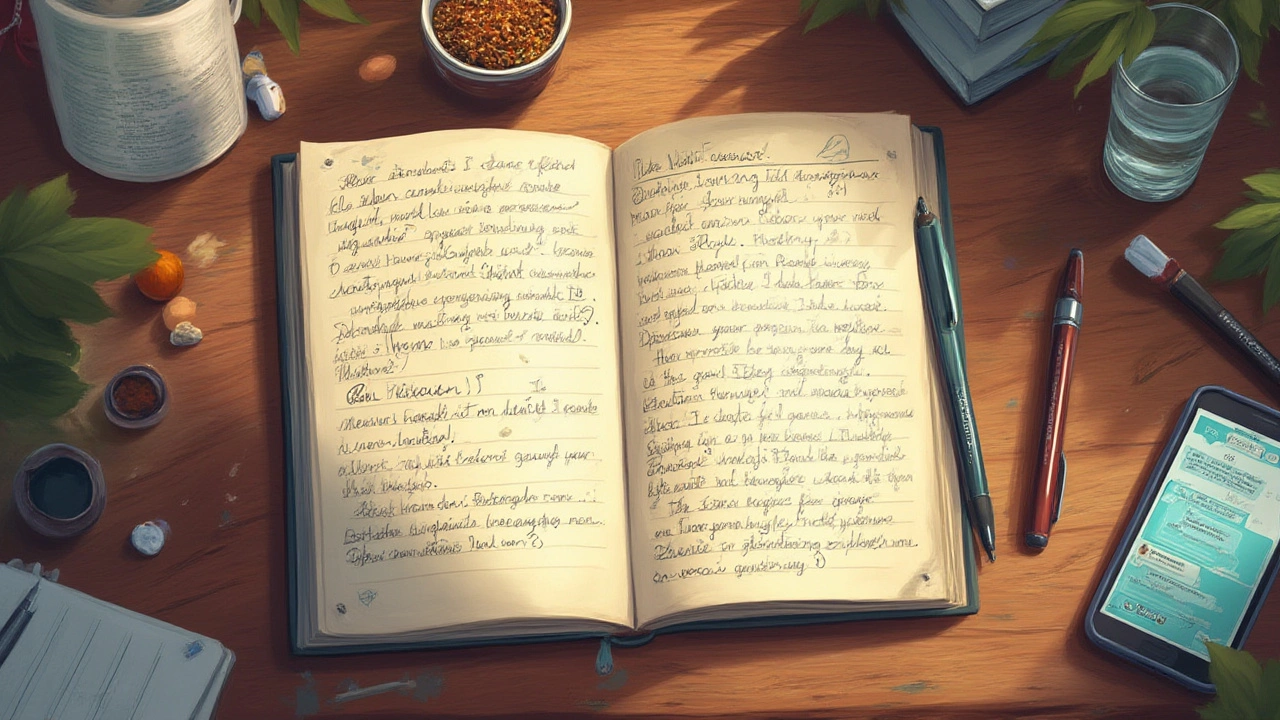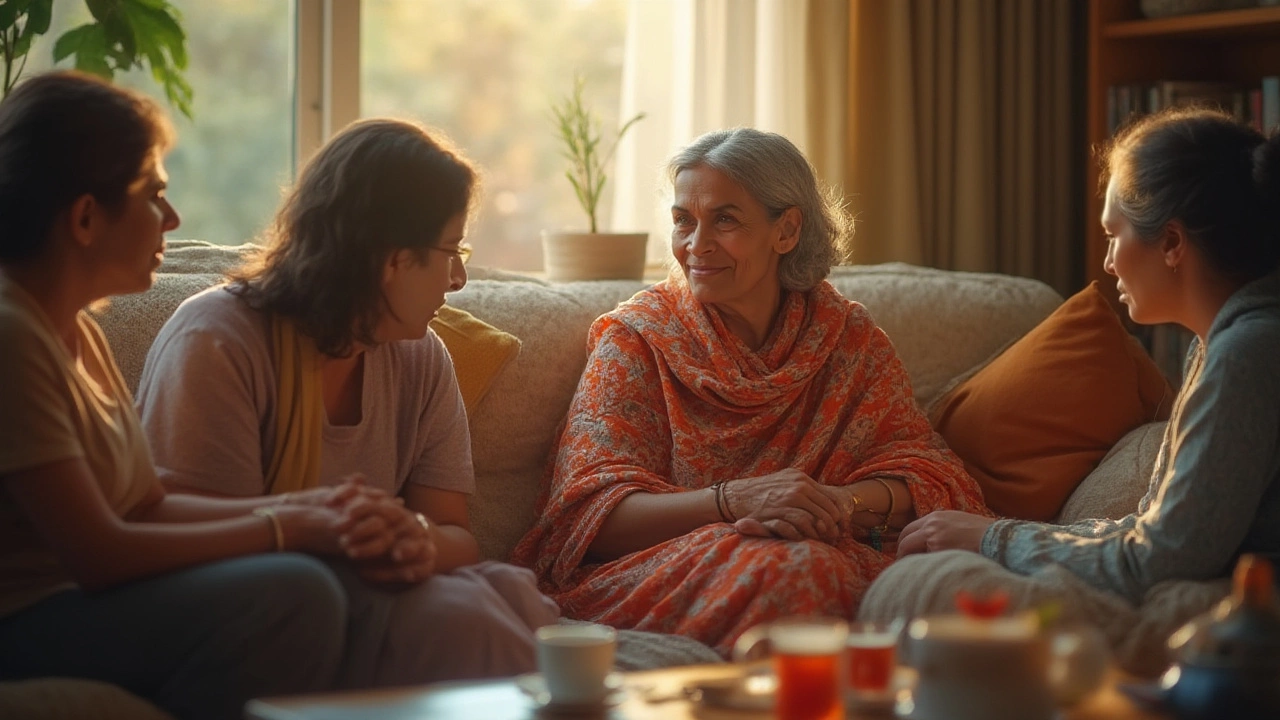It’s a strange fact about chemotherapy: most people imagine it’s the day of treatment when everything hits hardest. That’s not quite right. For a lot of folks, the true challenge sneaks in a few days later, and the worst doesn’t always look the same each cycle. Chemo isn’t just a single punch — it’s a wave, and the aftershocks can be more confusing than the treatment itself. Sitting in a Bangalore hospital, I’ve heard stories from people who expected pain but weren’t prepared for how unpredictable those first days after chemo could be. Let’s talk straight—chemotherapy can be a rough ride, but knowing which days tend to be the toughest and understanding the realities of each symptom can make all the difference.
When Are the Hardest Days After Chemotherapy?
You finish a round of chemo and celebrate leaving the hospital or clinic. But then, there’s a delay. For most common regimens, especially if you’re getting a combination like AC-T or FEC (the ones many breast cancer patients in India get), the real afterburn kicks in between day 2 and day 5. If steroids are part of your protocol, don’t be fooled by those first 24 hours—they can mask fatigue and nausea, creating a false sense of security.
Here’s why timing matters: chemotherapy damages fast-growing cells, and your healthy cells (like those in your gut and immune system) take a few days to show the effects. A 2023 study in Mumbai showed that nearly 67% of patients felt their sickest on day 3 or 4 after each chemo cycle. Symptoms peak, then gradually taper, though everyone’s timeline is a little different. Some meds, like cisplatin, might have a “chemo hangover” that can last for a week or even longer.
It’s not uncommon for people to feel “almost normal” the day of chemo or even the next day because of the anti-nausea drugs. But after that, your energy plummets, nausea creeps in, and things like mouth sores and taste changes announce themselves with no warning. If you’re keeping a diary, you’ll probably spot a clear pattern after the first couple of rounds.
Here’s a snapshot of a typical week post-chemo for many regimens:
| Day | Common Symptoms |
|---|---|
| Day 1 | Little to no symptoms, maybe slight fatigue |
| Day 2-3 | Nausea begins, mild fatigue, metallic taste |
| Day 4-5 | Peak nausea, extreme fatigue, mouth sores, constipation or diarrhea |
| Day 6-7 | Fatigue continues, appetite loss, mood swings, risk of infection rises |
The toughest days after chemo usually fall in the day 3 to 5 window, but if you’re getting a different protocol (oral chemo, single-agent drugs), your own “worst days” could shift a bit. Don’t be surprised if one cycle wallops you harder than the next.
Symptoms: More Than Just Nausea
The movies love to show chemo as relentless puking, but real life brings a grab bag of side effects, each with its unique rhythm. Yes, nausea and vomiting are infamous, but diarrhea, constipation, mouth sores, dry mouth, strange tastes, muscle aches, and fever often join the party. For some, the psychological blows—like insomnia or sudden sadness—hit every bit as hard.
Fatigue stands out as one of the most debilitating symptoms, not just “I stayed up late” tired, but bone-deep exhaustion that sleep barely touches. In a typical oncology ward in Bangalore, fatigue is hands down what patients bring up most. It can make taking a shower feel like running a marathon. And it usually doesn’t peak right away; let’s say you go for chemo Thursday—by Saturday you might feel like you’ve aged 50 years.
Then there’s mouth trouble. Chemo eats at the fast-growing cells in your mouth, leading to ulcers, a dry, sore tongue, and a weird “chemo mouth” taste that turns even favorite foods into chores. Drinking water feels like sipping chili, and all the while, heavy constipation or urgent diarrhea ignores your bathroom schedule. You quickly learn the value of plain rice and coconut water!
Let’s not leave out the immune crash. Around a week after chemo, your body’s defenses are at their thinnest. A 2022 report from Tata Memorial Hospital showed over half of hospitalized chemo patients had developed a fever during this period. Even a slight rise in temperature means it’s time to call your doctor.
Medications have improved a lot. Anti-nausea drugs help, and most regimens will include them as a rule. But no medicine can prepare you for the sudden mood crashes, the brain fog (often called “chemo brain”), and the way your body forgets how to wake up in the morning. It’s a full-body experience, and every cycle is a little different.

Facing the Hardest Days: Real-Life Tips That Actually Help
When those bad days hit, small comforts add up. Plenty of folks will offer “just rest” as advice, but—come on—nobody can nap all day. Instead, set micro-goals: get out of bed, walk to the kitchen, text a friend. There’s satisfaction even in tiny wins.
Hydration turns into a daily mission. Keep a water bottle close. If plain water tastes awful, try nimbu paani, chilled tender coconut water, or homemade buttermilk—anything gentle that doesn’t burn a sore mouth. Many survivors in Bangalore swear by sucking on ice chips tinged with lemon or orange, which also helps with dry mouth and metallic taste.
When it comes to food, the “eat what you can” rule is gospel. Skipping spice is a good idea for a few days; many switch to boiled rice, curd, bananas, or idli—soft, bland, easy to swallow. Protein matters too, so add a scoop of protein powder to dal or drink lassi with a bit of paneer or tofu blended in. On the roughest days, little and often is better than forcing large meals.
Don’t be shy about asking for help. If you can, lean on family for cooking or cleaning—energy is a limited resource, and you may want to save it for things you enjoy. And never hesitate to call your care team with questions. If you see blood in your stool, can’t stop vomiting, or have a fever above 38°C (100.4°F), that’s not just "chemo problems"—those are emergencies.
Mental health doesn’t get enough attention. The days after chemo can feel isolating. WhatsApp support groups are a lifeline. Reach out. Others have traveled this same road and the smallest “Me too” can bring real comfort. Try to avoid news doomscrolling or medical forums on rough days; uplifting podcasts and comedy videos are underrated medicine.
Tracking your symptoms matters! Many people use a simple mood and symptoms chart. On your "bad days," see if anything helped—even something as odd as chewing ice cubes or smelling cardamom. That knowledge helps you outsmart the next round.
What the Data Really Says, and When Does It Get Easier?
You might be wondering: does this get any easier? Strangely, yes and no. A 2024 Indian Journal of Cancer Care survey found that, by the third chemo cycle, most people felt more in control. They didn’t always have fewer symptoms, but they got better at coping. Familiarity, not just with the meds but with your own patterns and triggers, makes a difference.
Knowing the hardest days ahead of time means you can plan appointments and chores accordingly. Many patients in Bangalore work part-time or remotely through treatment. Scheduling “heavy” tasks for week two, when energy levels are bouncing back, saves a lot of frustration and guilt.
Families and caregivers are part of this equation too. Being candid about your “worst days” helps them support you without hovering or missing signs of trouble. People adapt fast; soon you’ll have your own toolkit of food, comfort items, and coping hacks.
Chemotherapy protocols are evolving. Some of the drugs that used to knock people flat are less common now. Doctors tailor doses and schedules based on blood counts and symptom diaries, so being vocal about your bad days can shape your treatment plan.
There's a silent bond among cancer survivors in the city and beyond: those “hardest days” aren’t a personal weakness. They’re just part of the trip. Years later, people remember the exhaustion, the taste of dry ginger biscuits, and the way a phone call from a friend could light up a whole afternoon.
There’s no one-size-fits-all advice for the hardest days after chemo—but being informed, prepared, and just a bit forgiving of yourself makes the journey a lot less lonely.
